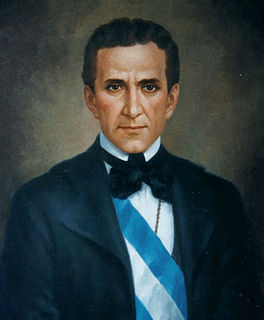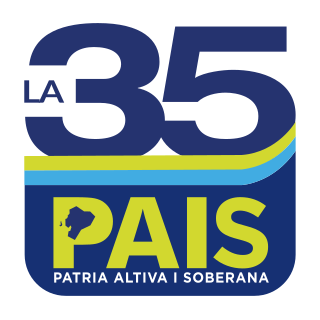
The economy of Ecuador is based mostly on exports of oil, bananas, shrimp, gold, other primary agricultural products and money transfers from nearly a million Ecuadorian emigrants employed abroad. In 2002, oil accounted for about one-third of public-sector revenue and 40% of export earnings. Ecuador is the world's largest exporter of bananas and a major exporter of shrimp. Exports of non-traditional products such as flowers and canned fish have grown in recent years. Industry is largely oriented to servicing the domestic market.

The Bank of Spain, is the central bank of Spain. Established in Madrid in 1782 by Charles III, today the bank is a member of the European System of Central Banks and is also Spain's national competent authority for banking supervision within the Single Supervisory Mechanism. Its activity is regulated by the Bank of Spain Autonomy Act.

Barcelona Sporting Club is an Ecuadorian sports club based in Guayaquil, known best for its professional football team. They currently play in the Liga PRO Ecuador, the highest level of football in the country, and hold the distinction of being the only club in Ecuadorian history not to be relegated to the Serie B.

José Joaquín de Olmedo y Maruri was President of Ecuador from March 6, 1845 to December 8, 1845. A patriot and poet, he was the son of the Spanish Captain Don Miguel de Olmedo y Troyano and the Guayaquilean Ana Francisca de Maruri y Salavarría.

Alfredo Pareja Diezcanseco — born Alfredo Pareja y Díez Canseco — was a prominent Ecuadorian novelist, essayist, journalist, historian and diplomat. An innovator of the 20th-century Latin American novel, he was a founding member of the literary Grupo de Guayaquil. The government of President Jaime Roldós Aguilera (1979–81) appointed him Chancellor of the Republic and he served as Foreign Minister of Ecuador (1979–80) and Ambassador to France (1983–84).
The peso was a currency of Ecuador until 1884.

Judith Gutiérrez Moscoso was an Ecuadorian painter who lived and worked in Ecuador and Mexico. Along with other female artists, she formed part of the Guayaquil School for Contemporary Plastic Arts and was active in militant groups such as the Union of the Women of Guayas, a precursor to Ecuadorian feminist organizations.

The Central Bank of Ecuador is the central bank of Ecuador.

The Bank of the South or BancoSur is a monetary fund and lending organization established on 26 September 2009 by Argentina, Brazil, Paraguay, Uruguay, Ecuador, Bolivia and Venezuela with promises of initial capital of US$20 billion. Argentina, Venezuela, and Brazil were to have each pledged $4 billion, and Uruguay, Ecuador, Paraguay and Bolivia were to have contributed smaller amounts. The intention of the bank was to lend money to nations in the Americas for the construction of social programs and infrastructure. Documents establishing the bank as an entity were signed in 2007, and the agreement between the countries was finalized in 2009, but as of 2016, the bank had not been capitalized.

PAIS Alliance is an Ecuadorian center-left social democratic political party.
The article provides a historical summary of the currency used in Ecuador. The present currency of Ecuador is the United States dollar.

The following is an alphabetical list of topics related to the Republic of Ecuador.
BAE Abdón Calderón is a naval ship of Ecuador, built in 1885 and now preserved as a museum ship at Guayaquil.

Ricardo Armando Patiño Aroca is an Ecuadorian politician who has served as Minister of Foreign Affairs of Ecuador from 2010 until 2016, under the government of President Rafael Correa. Previously he was Minister of Finance and Minister of the Coast. He is one of the ideologists of The Citizens' Revolution who wants to gradually introduce a democratic socialist government in Ecuador. On 4 March 2016, he was name as Defense Minister by President Rafael Correa.

Banco Crédito y Ahorro Ponceño was the first bank in Ponce, Puerto Rico, and one of the first two native Puerto Rican banks to be established in Puerto Rico. The bank was the first one to introduce a bank credit card to the Puerto Rican market. With over 50 branches throughout the island, the bank was one of the largest banking companies in Puerto Rico during most of the twentieth century.
Marcel Jacobo Laniado de Wind was an agricultural engineer and banker who held a number of important public and private positions in Ecuador. He was a humanist, and a public figure in Ecuador for his efforts to improve the country.

Presley Norton Yoder was an Ecuadorian archeologist and entrepreneur.
The Public News Agency of Ecuador and South America(Andes) is the official digital information service of the Ecuadorian State. Andes is a public media organisation which provides regional and national news coverage, as well as general information on Latin America. The agency also provides multimedia services including an image bank.

















